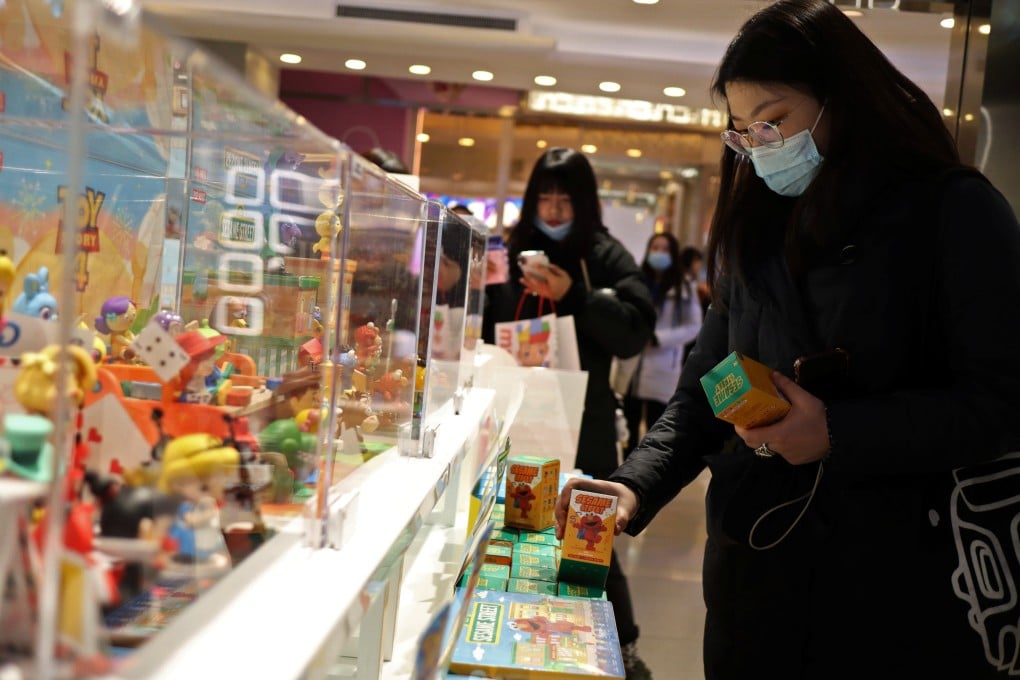After Pop Mart IPO, blind boxes are helping China’s tech giants and luxury brands gamify e-commerce
- Pop Mart helped make the blind box concept a mainstream sensation in China, and now online retailers and social media are replicating the experience
- Beauty retailer Sephora and fashion brand Lanvin are among the brands that have used surprise products on platforms like WeChat and Douyin, China’s TikTok

When her friend showed up with three new blind boxes from Pop Mart International Group in late 2020, 25-year-old Zhou Yilei had an exhilarating choice ahead of her: pick one to open herself and find out which collectable figurine was inside. Would she discover a rare and highly coveted character or another run-of-the-mill one?
“I found myself holding all kinds of expectations: ‘Which one is it? Would it be the one I liked?’ The expectation and the gambling-like feeling hit their peak as you open,” Zhou said.
By December, the toymaker that had converted her into a blind box collector went public in Hong Kong, raising US$676 million. Pop Mart shares debuted at around HK$70 (US$9), but have since fallen closer to HK$50 amid a declining market, closing at HK$53.60 on Friday.
Many remain baffled by the company’s core product – a small box containing a mysterious figurine that costs 59 yuan (US$9) – but the marketing tactic has been largely embraced by brands and online retailers in the pursuit of young Generation Z consumers.
Over the last year, the strategy has proven widely popular in China, where companies have increasingly applied it to virtual goods and e-commerce in WeChat mini-programs and during shopping festivals. Even as China has sought to limit the use of loot boxes in video games because of their gambling-like properties, the “blind box” concept is exploding in the country. China’s market for designer toys was worth 29.4 billion yuan in 2020, and the blind box market accounted for about 31 per cent of it, market consultancy iiMedia Research reported.